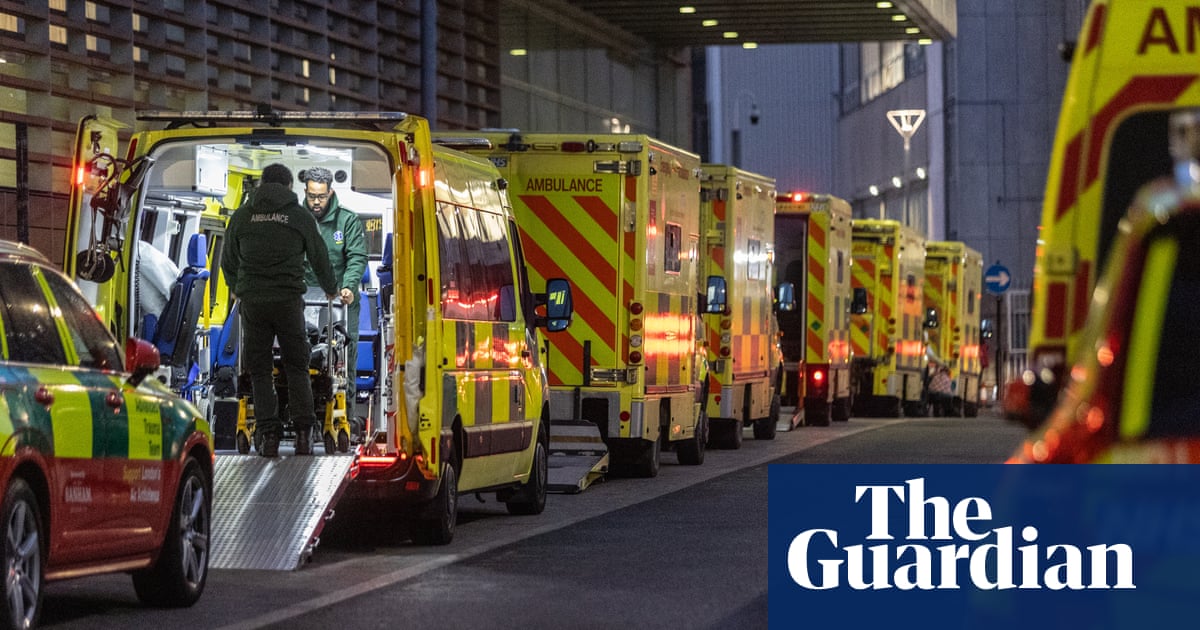An elderly man was left unable to swallow after waiting over two days in A&E without being given regular medication, and died four weeks later.
In a “shocking” case that has raised fresh concerns over the state of urgent NHS care, the 85-year-old was sent to a hospital emergency department after a routine appointment. Amid massive delays, his A&E wait went into a third day, with most of it spent on a bed in the corridor.
He had Parkinson’s disease and required medicine at various intervals to control his symptoms. During his time in A&E, the man should have received 18 doses but seven were not given and three were given late, according to a report from the Health Services Safety Investigations Body (HSSIB).
The report, which does not name the patient or hospital, highlights how the man was advised to go to A&E after complaining of back pain following a fall at home the day before.
After 52 hours in A&E, he was finally admitted to a ward where his Parkinson’s symptoms deteriorated and he lost the ability to swallow, the HSSIB said.
He died four weeks later, with the causes of death listed on the death certificate as a severe chest infection, Parkinson’s and frailty of old age.
The HSSIB report highlights how the man spent most of his time in A&E on a bed in a corridor because of demand on services. Corridor care can cause problems for emergency staff because there are “limited opportunities to store medication brought from home”, the authors said.
They highlighted how there was no function to automatically alert staff that he should have received time-critical medication. And staff were not able to check prescription information with the patient’s GP practice or Parkinson’s specialty team outside of working hours.
A&E staff also received contradictory information about the dosage of medication required from the patient’s record and his son. Staff took the GP information “as the most accurate record, but the information it contained was incorrect”.
Investigators found there were “no defined roles or responsibilities in the emergency department to ensure patients who required time-critical medications were identified, and medications prescribed, as soon as possible”.
The HSSIB warned that “patients who need medications can suffer harm if these are not provided” as it called on health bodies to make sure they are adhering to expert guidelines on time-sensitive medications for patients.
The latest performance data for the NHS in England shows that 49,592 people had to wait more than 12 hours in A&E departments in October from a decision to admit to actually being admitted, the third highest monthly figure since comparable records began in 2010.
Dr Adrian Boyle, the president of the Royal College of Emergency Medicine, said the case was shocking and tragic.
“[This] should serve as a call to action for all emergency department clinicians. No patient who enters an emergency department should fear their health will be put at risk because they are unable to access their regular prescription when they need it,” he said.
“Asking patients if they take any time-critical medication, and when their next dose is due, should be one of the questions every clinician asks.
“This simple inquiry becomes increasingly pertinent given the backdrop of the extremely long A&E stays more and more people are having to endure. In this tragic case – a shocking 52 hours.”
Deinniol Owens, the deputy director of investigations at the HSSIB said: “When patients are in the emergency department it is crucial that, alongside any emergency treatment needed, medication they require for other conditions is prioritised.
“The case we examined during this investigation was a sobering example – if patients do not receive medication for their Parkinson’s it can make them seriously unwell, and doses not being given on time increases the risk of harm and reduces the effectiveness of the medication.
“It is distressing for patients and their families, and in this case the family felt they were not always listened to even though they communicated his needs and emphasised how important the correct timing of the dosage was.
“Our investigation makes a number of important findings in relation to how time-critical medications are considered in emergency departments.
“We are sharing this at a national level to prompt providers to look at how they administer critical medication, in a busy and challenging emergency environment and how they ensure patients receive medication in a timely and safe way.”

.png) 1 month ago
11
1 month ago
11













































